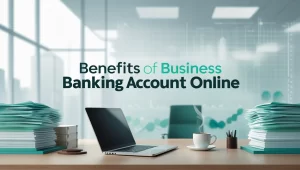Expert Advice on Startup Business Funding Bad Credit Success Stories

Expert Advice on Startup Business Funding Bad Credit Success Stories-Starting a business can feel like navigating a labyrinth of challenges, especially when it comes to securing the necessary funding. For entrepreneurs with bad credit, the road to funding may seem even more daunting. But here’s the truth: bad credit doesn’t have to be a barrier to success. Many entrepreneurs have faced similar hurdles and managed to secure the startup business funding they needed to turn their ideas into thriving businesses.
In this article, we’ll share expert advice on how to overcome bad credit and explore real success stories of entrepreneurs who successfully navigated the startup funding world despite their credit challenges.
Understanding the Impact of Bad Credit on Startup Business Funding
When seeking startup business funding with bad credit, it’s essential to first understand the role your credit history plays in the process. Traditional lenders like banks often rely heavily on personal credit scores to assess the risk of lending. A low score can make securing business loans difficult, and if you do get approved, the terms may not be favorable.
That said, bad credit isn’t an automatic roadblock. Many funding options available today are more flexible and understanding of an entrepreneur’s unique circumstances. In fact, bad credit is becoming less of an obstacle, as more non-traditional funding sources recognize that success isn’t solely determined by credit history but by a great business idea, determination, and the ability to execute a solid business plan.
1. Leverage Alternative Lenders: A Flexible Approach to Startup Funding

One of the best ways to secure startup business funding with bad credit is through alternative lenders. Unlike traditional banks, alternative lenders focus less on credit scores and more on other factors, such as your business’s cash flow, revenue, and overall potential.
Success Story: Michelle’s Online Boutique
Michelle had always dreamed of opening her own online boutique, but a series of financial setbacks had left her with a low credit score. She thought her dreams of becoming an entrepreneur were over, but then she discovered online lending platforms like Kabbage and OnDeck.
These platforms offered her a loan based on her business’s projected revenue, not her credit score. Within a few days, Michelle received the funds she needed to purchase inventory and launch her website. Today, her online boutique is thriving, and she’s been able to pay off the loan early thanks to consistent sales.
Expert Tip: Look for online lenders that specialize in startup business funding. These platforms often use innovative technology to assess your business’s potential rather than relying solely on credit scores. Fast approval processes and flexible terms make them a great option for those with bad credit.
2. Explore Peer-to-Peer (P2P) Lending: Connect with Investors
Peer-to-peer lending has become an increasingly popular way for entrepreneurs with bad credit to secure startup funding. P2P lending connects borrowers with individual investors who are willing to lend money in exchange for a potential return on investment. These platforms often have more lenient credit requirements compared to traditional banks, making them a viable option for those with poor credit.
Success Story: David’s Craft Brewery
David, a passionate homebrewer, wanted to open a craft brewery but struggled with securing financing due to his bad credit. Instead of giving up, he turned to a P2P lending platform called LendingClub. With a compelling business plan and an understanding of his local market, he convinced investors to back his brewery.
David was able to raise the capital he needed to lease a space, purchase equipment, and launch his brewery. His craft beers quickly gained a loyal following, and within a year, David was able to pay back his investors and even expand his operation.
Expert Tip: When applying for P2P lending, be transparent about your financial situation. Investors on these platforms are often more interested in your business’s growth potential and your vision. Craft a solid business plan and be prepared to demonstrate how you will make the business profitable. (Read More: The Essential Qualifications for Business Credit Card Success)
3. Crowdfunding: Turn Your Idea into Reality

Crowdfunding is a great way to secure startup business funding without relying on credit history. Platforms like Kickstarter, Indiegogo, and GoFundMe allow entrepreneurs to present their ideas to the public and raise funds from individuals who believe in their vision. This method doesn’t require you to have perfect credit; instead, it focuses on the strength of your idea and your ability to engage with potential backers.
Success Story: Jessica’s Sustainable Fashion Line
Jessica’s passion for sustainable fashion led her to create a clothing line made from eco-friendly materials. However, with a credit score below 600, she was unable to secure a traditional loan. Determined to make her vision a reality, Jessica turned to Kickstarter.
Her campaign featured a well-crafted pitch, beautiful visuals of her products, and a clear explanation of how her brand was making a positive environmental impact. She offered early access to her clothing line and other rewards for backers, and within a month, she surpassed her funding goal.
Today, Jessica’s brand is sold in boutique stores across the country, and she’s been able to scale her business thanks to the funds raised through crowdfunding.
Expert Tip: A successful crowdfunding campaign requires more than just a great idea. You’ll need to create an engaging pitch, promote your campaign through social media and networks, and offer meaningful rewards to backers. If you can capture people’s attention and show them why your idea is worth supporting, crowdfunding can provide a significant financial boost. (Read More: How a Startup Business Line of Credit Can Fuel Your Growth in 2025)
4. Government Grants and SBA Loans: Non-Repayable Funds
For entrepreneurs with bad credit, government grants and loans can offer non-repayable funds or more lenient loan terms. Programs offered by the Small Business Administration (SBA), such as the SBA Microloan program, can provide startup business funding to those with bad credit. These loans are typically offered through nonprofit lenders who are more willing to work with entrepreneurs who may have financial challenges.
Success Story: Alex’s Tech Startup
Alex, a software developer with a passion for building mobile apps, had a brilliant idea for a tech startup. However, his poor credit history made it difficult to secure funding from traditional sources. Undeterred, Alex explored government-backed loans and found the SBA Microloan program.
The SBA loan offered him up to $50,000 with a low interest rate and flexible repayment terms. With this funding, Alex was able to hire a small team of developers and launch his app. Within two years, his app gained traction in the marketplace, attracting the attention of investors who offered to buy his company.
Expert Tip: Consider applying for government-backed loans or grants. The SBA and other government programs can offer funding opportunities with less emphasis on your credit score. While grants can be highly competitive, SBA loans are a valuable option for those with bad credit who need financial support to get started. (Read More: Top Tips for Securing a Startup Business Line of Credit This Year)
5. Angel Investors: Seek Equity Investment

Angel investors are high-net-worth individuals who invest their personal funds in startups in exchange for equity in the business. For entrepreneurs with bad credit, angel investors can provide a way to secure funding without the need for traditional credit checks. Instead, investors are often more focused on the potential for high returns and the strength of your business idea.
Success Story: Maria’s Wellness Center
Maria wanted to open a wellness center offering yoga, meditation, and holistic health services, but her credit score made it difficult to obtain a loan. Instead, she turned to angel investors who were interested in the growing wellness industry. After presenting a detailed business plan and showcasing the increasing demand for wellness services, Maria secured the funding she needed.
Her wellness center became a local hotspot, and she was able to repay her investors while maintaining full control over her business. Today, Maria’s wellness brand has expanded to multiple locations, and she continues to receive offers from other investors eager to partner with her.
Expert Tip: When seeking angel investment, focus on presenting a scalable business model. Angel investors are typically looking for businesses with high growth potential. Be ready to show them how your business can grow and generate returns on their investment.
Conclusion article Expert Advice on Startup Business Funding Bad Credit Success Stories
Startup business funding with bad credit may seem like an insurmountable challenge, but as these success stories demonstrate, it’s entirely possible to overcome this obstacle. Whether you turn to alternative lenders, crowdfunding, government-backed programs, or angel investors, the key is persistence, creativity, and a well-prepared business plan.
If you’re an entrepreneur with bad credit, remember that your credit history doesn’t define your potential. With the right approach, resources, and mindset, you can secure the funding needed to bring your business idea to life. Keep exploring different funding options, learn from the experiences of others, and take the steps necessary to turn your dreams into a reality.





